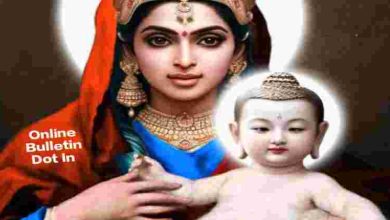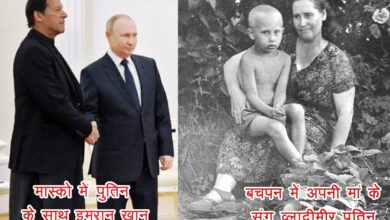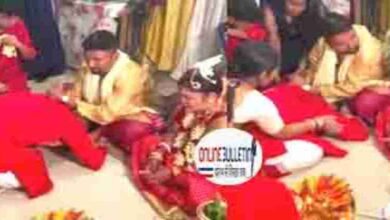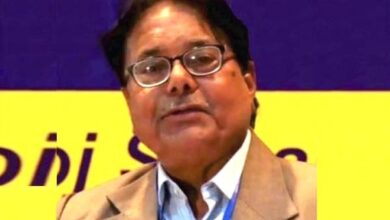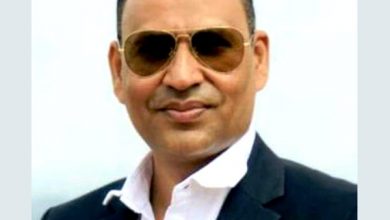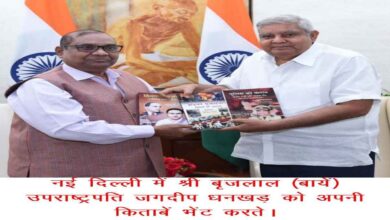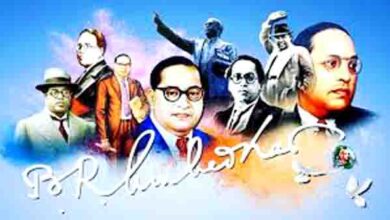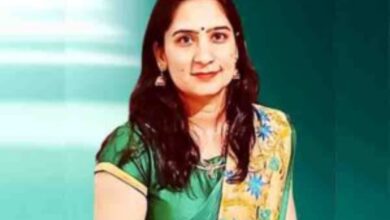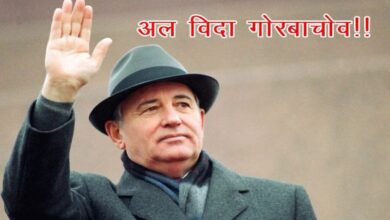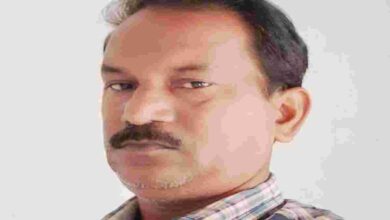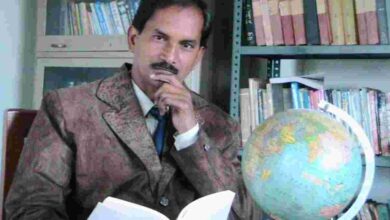अब और क्यों देरी 124 (ए) पर ? ab aur kyon deree 124 (e) par ?
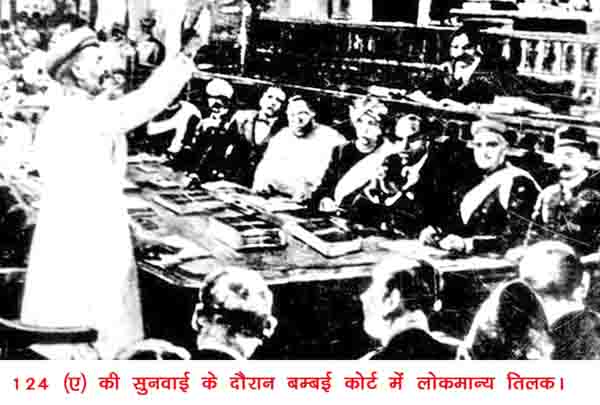
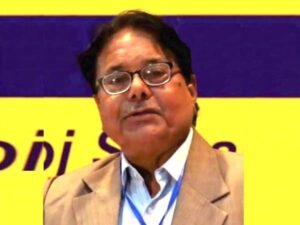
©के. विक्रम राव, नई दिल्ली
–लेखक इंडियन फेडरेशन ऑफ वर्किंग जर्नलिस्ट (IFWJ) के राष्ट्रीय अध्यक्ष हैं।
उच्चतम न्यायालय द्वारा राजद्रोह कानून (124—ए) पर व्यक्त राय से मेरी पूर्णतया असहमति है। खण्डपीठ ने भ्रमित जनमानस को आश्वस्त नहीं किया कि राज्य तथा सरकार एक नहीं हैं। पृथक है। कारण यही कि सरकारें इस गलतफहमी का दुरुपयोग कर न्याय प्रक्रियाओं को बाधित कर देती हैं। भारतीय संविधान के प्रथम संशोधन (1951) में धारा 19(2) को पुनर्लेखित किया गया। राज्य की सुरक्षा के स्थान पर ”सार्वजनिक व्यवस्था के हित में” शब्द रखे गये। इससे 124 (ए) को बल मिला। ”राज्य” तो परिभाषित हो सकता है। ”व्यवस्था” तो शासकों की फितरत पर निर्भर है। तब भारत के प्रधानमंत्री जवाहरलाल नेहरु थे। आखिर 124 (ए) की आवश्यकता ब्रिटिश भारत को क्यों हुयी ?
शासन तो साम्राज्यवादी था। वायसराय लार्ड एलगिन (1862—63) को आशंका थी कि बंगाल के सैय्यद मीर नासिर अली (टीटू मीर) द्वारा बंगाल के बारासात क्षेत्र में चले जमीदारी—विरोधी संघर्ष वस्तुत: ब्रिटिश साम्राज्य को उखाड़ने की साजिश है। इंग्लैण्ड में ऐसा कानून महारानी एलिजाबेथ प्रथम (1558—1603) के राज में आया था। तब राजा और सरकार एक ही होते थे। क्रमश: अवधारणा बदली। मगर अंग्रेजी राज में साम्राज्य तथा सरकार में साम्य दृढ होता गया।
हिन्दुस्तान की जंगे आजादी के दौर में महात्मा गांधी ने कहा था कि राजद्रोह राष्ट्रीय कांग्रेस की आस्था हो गयी है। चौरा—चौरी काण्ड के बाद 1922 में अदालत में बापू ने कहा था : ” यह मेरा अनिवार्य कर्तव्य हे कि मैं इस औपनिवेशिक राज के विरुद्ध वितृष्णा संर्जाऊ।” हालांकि महात्मा के गुरु गोपालकृष्ण गोखले ने अंग्रेजो द्वारा मीडिया को पाबंद करने वाले प्रेस एक्ट (1919) को पारित करने का समर्थन किया था, क्योंकि ब्रिटिश राज का वादा था इसके द्वारा अराजक तत्वों को ही नियंत्रित किया जायेगा। पर शीघ्र ही जब राष्ट्रवादी एन्नी बीसेन्ट तथा अन्य भारतप्रेमियों का दमन हुआ तो गोखले को गलती पर खेद हुआ।
जैसा आज भारत में 124 (ए) के हिमायतियों को हो रहा है। यही हुआ था इंदिरा गांधी के यूएपीए एक्ट (1967) के साथ जिसका बाद में दुरुपयोग होने पर कथित वामपंथी रुष्ट हुए थे। मगर यही लोग उस वक्त अल्पमतवाली कांग्रेस सरकार के लोकसभा में हमराही थे। गनीमत है राजग सरकार ने पोटा को बेमानी कर दिया वर्ना वह स्वतंत्रता के हनन का वह सुगम माध्यम था।
मगर सत्ता पर विराजमान रहने की बेला पर और फिर प्रतिपक्ष में आ जाने पर राजनेताओं की जबान बदल जाती है। मसलन 1951 में जवाहरलाल नेहरु ही संविधान में प्रथम संशोधन संसद में लाये थे। इससे धारा 19(2)(ए) तथा 19(2) को संशोधित कर राज्यों को अधिकार दे डाला कि वह अभिव्यक्ति की आजादी पर ”तार्किक प्रतिबंध लगाये।” तब संयुक्त राज्य अमेरिका में संविधान का प्रथम संशोधन (30 अप्रैल 1789) लाया गया था तो निर्धारित हुआ कि अखबारी आजादी को कदापि संकुचित नहीं किया जा सकता है।
एक श्रमजीवी पत्रकार के नाते मेरा तथा मेरे मीडियाकर्मियों के राष्ट्रीय संगठन की यह दृढ मान्यता है कि सरकार स्वयं को राज्य नहीं बतला सकती। दोनों में मूलभूत अंतर है। विचारक लोहिया ने हमें सिखाया था कि विपक्ष का धर्म है कि वह सरकार गिराये। जिन्दा कौमें पांच साल इंतजार नहीं करतीं। उनकी यह उक्ति थी। कहा था: ”बल्कि विरोधी नेता पलके भी गिराते है तो सत्ता पलटने के लिये।” आजाद राष्ट्र में यही लोकतंत्र का अमृत होता है। लोकमान्य और बापू ने भी यही सिखाया है। धर्मसूत्र में राजा ही राज्य का पर्याय होता था। उसका मानुषीकरण होता था। अर्थशास्त्र में कौटिल्य ने यही कहा था। पर यह पारम्परिक मान्यता नहीं हो सकती। राज्य और राष्ट्र भिन्न संस्थायें हैं।
भारत में राजा तथा राज्य के विरुद्ध पहला बागी था भक्त प्रहलाद। जब राजा और राज्य दुराचारी हो जायें तो उसका नाश करना जनसाधारण का कर्तव्य है। यही सुकरात ने यूनान के युवाओं को समझाया था। हेनरी डेविड थोरो ने अमेरिका से ऐसा ही कहा था कि बगावत ही जीवन दर्शन है।
part 1 of 2
Why the delay on 124(a) anymore?
I completely disagree with the opinion expressed by the Supreme Court on the Sedition Act (124-A). The Bench did not assure the confused public that the State and the Government are not the same. is isolated. The reason is that by misusing this misconception, the governments obstruct the justice process. Article 19(2) was rewritten in the First Amendment (1951) of the Indian Constitution. The words “in the interest of public order” were substituted for the security of the state. This gave force to 124(a). “State” can then be defined. The “system” depends on the nature of the rulers. Then the Prime Minister of India was Jawaharlal Nehru. After all, why did British India need 124 (A)?
The government was imperialistic. The Viceroy Lord Elgin (1862–63) suspected that the anti-zamindari struggle in the Barasat region of Bengal by Sayyid Mir Nasir Ali (Titu Mir) of Bengal was actually a conspiracy to overthrow the British Empire. Such a law came in England during the reign of Queen Elizabeth I (1558-1603). Then the king and the government were one and the same. Gradually the concept changed. But under the British rule, the balance between the empire and the government became stronger.
During India’s war of independence, Mahatma Gandhi had said that sedition has become the faith of the National Congress. After the Chaura-Chauri incident, in 1922, Bapu had said in the court: “It is my obligatory duty to bear hatred against this colonial rule.” However, Gopalkrishna Gokhale, the Mahatma’s guru, had criticized the Press Act banning the media by the British. (1919) had supported the passage of, Because there was a promise of the British Raj, through this only the anarchic elements would be controlled. But soon when the nationalist Annie Besant and other India-lovers were repressed, Gokhale regretted the mistake.
As is being done in India today by advocates of 124(A). This is what happened with Indira Gandhi’s UAPA Act (1967), which was later misused to anger the so-called Left. But these same people were with us in the Lok Sabha of the minority Congress government at that time. It is fortunate that the NDA government made POTA redundant, otherwise it was an easy medium for the violation of freedom.
But on the time of sitting in power and then coming to the opposition, the language of the politicians changes. For example, in 1951, Jawaharlal Nehru brought the first amendment to the Constitution in the Parliament. This amended Sections 19(2)(a) and 19(2) to empower the states to “impose reasonable restrictions on freedom of expression.” Then the First Amendment of the Constitution in the United States (30 April 1789) When it was brought, it was determined that newsprint freedom could never be curtailed.
As a working journalist, it is the firm belief of me and my national organization of media persons that the government cannot claim itself as a state. There is a fundamental difference between the two. The ideologue Lohia taught us that the religion of the opposition is to topple the government. The living nations do not wait five years. This was his statement. It was said: “In fact, if the opposition leader lowers his eyelids, then in order to reverse the power.” This is the elixir of democracy in a free nation. Lokmanya and Bapu have also taught the same. In Dharmasutra, the king was synonymous with the state. He was personified. This is what Kautilya said in Arthashastra. But this cannot be the traditional belief. State and nation are different institutions.
The first rebel in India against the king and the state was Bhakta Prahlad. When the king and the state become vicious, then it is the duty of the common man to destroy them. This is what Socrates explained to the youth of Greece. Henry David Thoreau told America that rebellion is the philosophy of life.
part 1 of 2
बर्तानवी राजतंत्र अस्ताचल की ओर ! bartaanavee raajatantr astaachal kee or !


